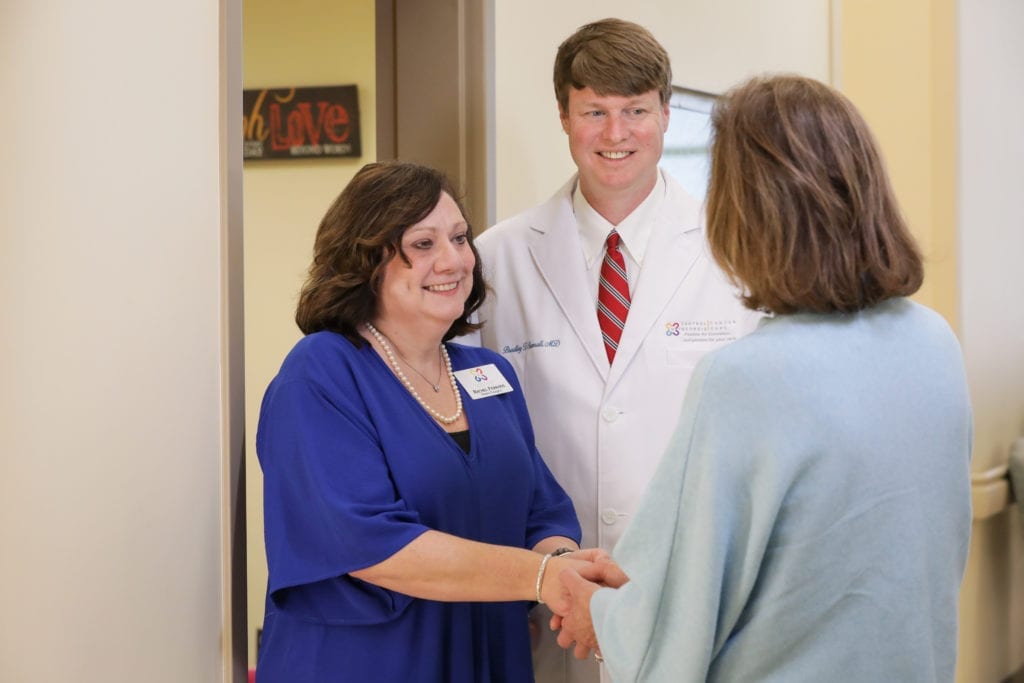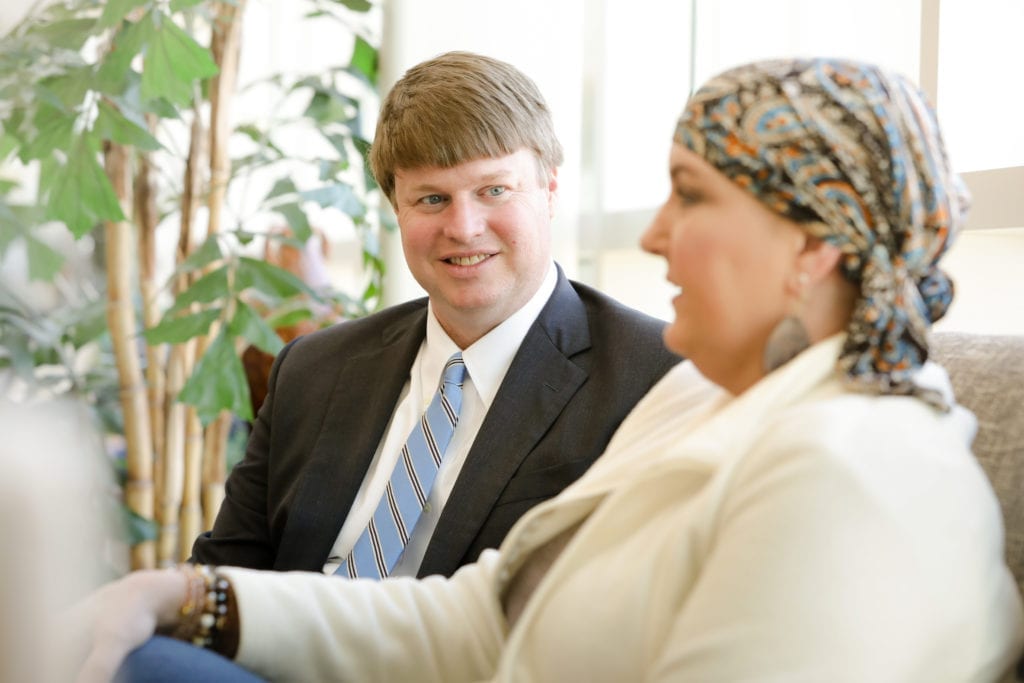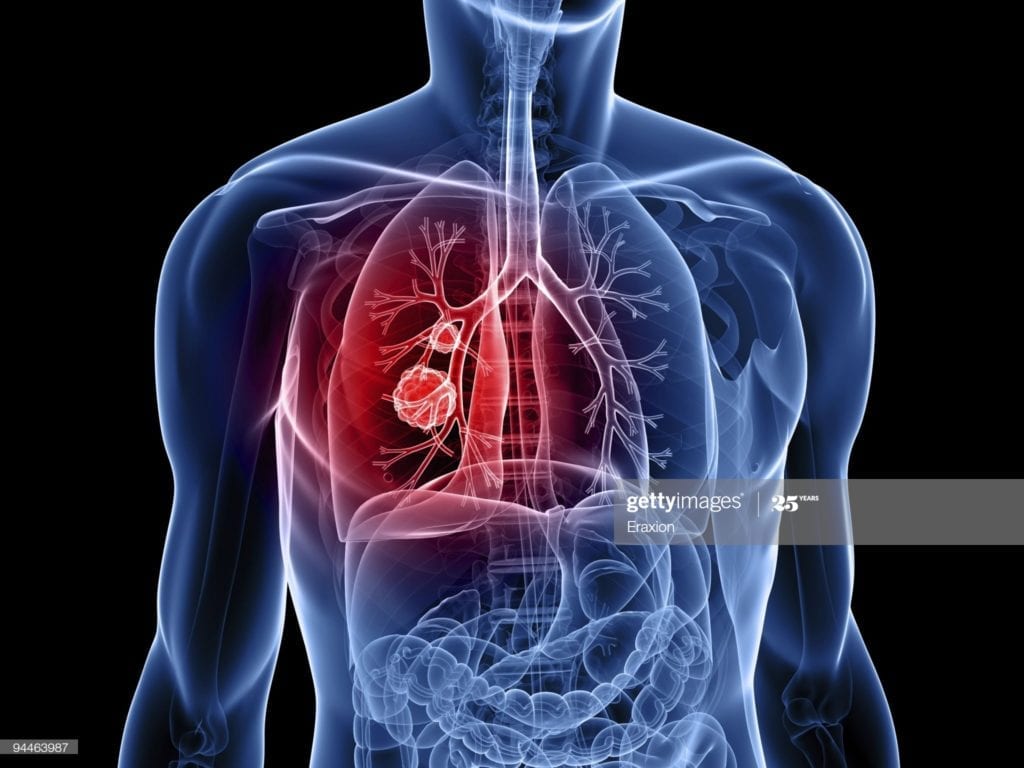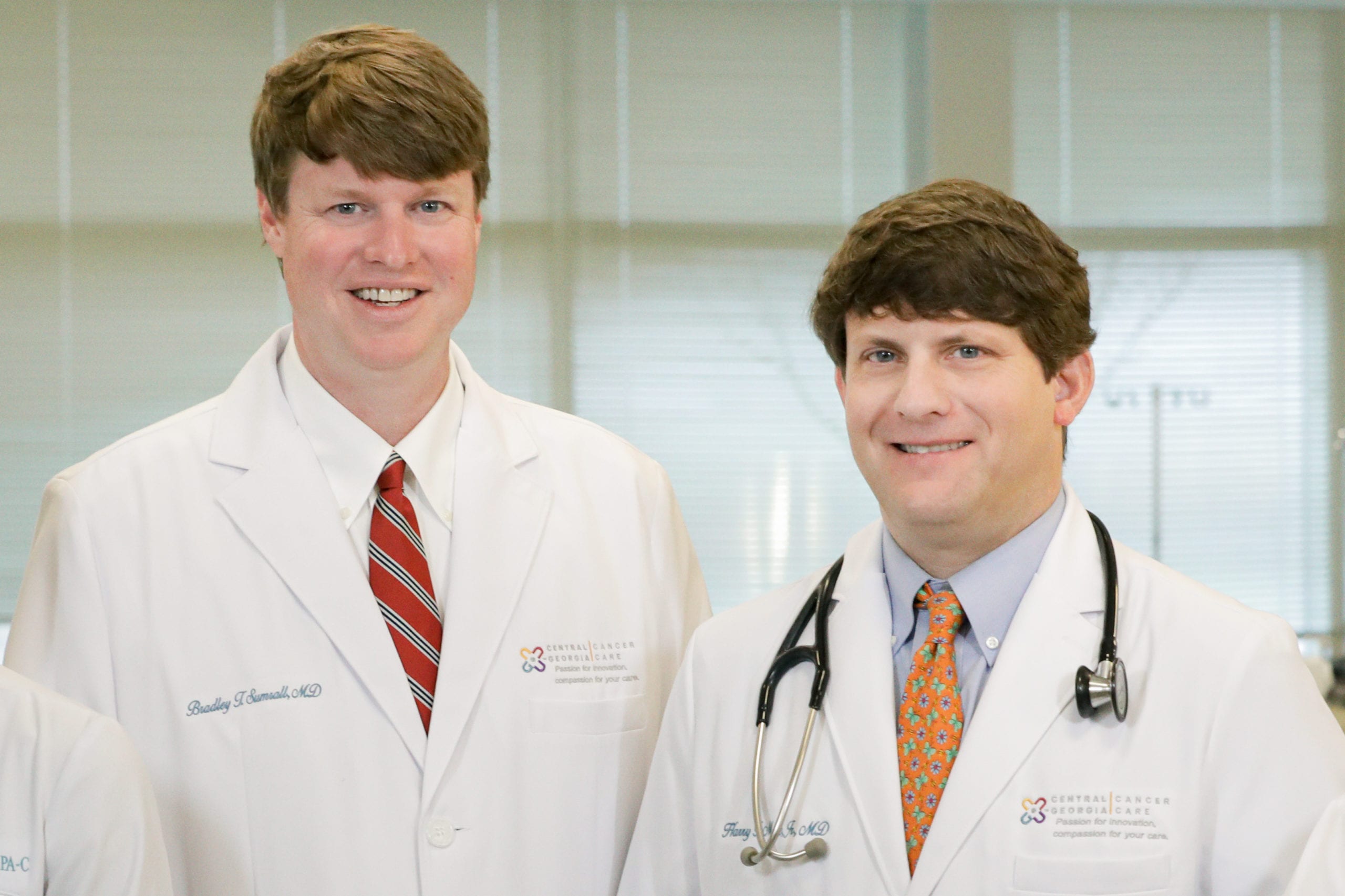Lung Cancer What is Lung Cancer?



What is Lung Cancer?
Located in the chest, the lungs are responsible for delivering oxygen to the bloodstream. When you take in a breath, your lungs absorb oxygen from the air. The air is routed through a series of tubes (the trachea, bronchi, bronchioles, and alveoli) very close to blood that is travelling in small vessels called capillaries. When you breathe out, you exhale carbon dioxide and substances you don’t need. The lungs are specially designed to place blood in close contact with as much air as possible, so their tissues are very delicate.
Most cells in the lungs are epithelial cells which line the airways and make mucus to lubricate and protect the lungs.
.embed-container { position: relative; padding-bottom: 56.25%; height: 0; overflow: hidden; max-width: 100%; } .embed-container iframe, .embed-container object, .embed-container embed { position: absolute; top: 0; left: 0; width: 100%; height: 100%; }
Lung cancer usually doesn’t cause signs and symptoms in its earliest stages. Signs and symptoms of lung cancer typically occur only when the disease is advanced. The most common symptoms of lung cancer are:
- A cough that does not go away or gets worse
- Coughing up blood or rust-colored sputum (spit or phlegm)
- Chest pain that is often worse with deep breathing, coughing, or laughing
- Hoarseness
- Loss of appetite
- Unexplained weight loss
- Shortness of breath
- Feeling tired or weak
- Infections such as bronchitis and pneumonia that don’t go away or keep coming back
- New onset of wheezing.
If lung cancer spreads to other parts of the body, it may cause:
- Bone pain (like pain in the back or hips)
- Nervous system changes (such as headache, weakness or numbness of an arm or leg, dizziness, balance problems, or seizures), from cancer spread to the brain
- Yellowing of the skin and eyes (jaundice) from cancer spread to the liver
- Swelling of lymph nodes (collection of immune system cells), such as those in the neck or above the collarbone.
Types of Lung Cancer Types of Lung Cancer
Lung cancer (both NSCLC and SCLC) is the second most common cancer in both men and women, not counting skin cancer. Lung cancer mainly occurs in older people; the average age at diagnosis is about 70. Smoking increases the risk for lung cancer.
There are two main types of lung cancer, and each is treated very differently:
Non-small cell lung cancer (NSCLC)
Non-small cell lung cancer (NSCLC), which accounts for 85% of lung cancers, begins in the epithelial cells when healthy cells in the lung change and grow out of control, forming a mass called a tumor, lesion, or nodule.
Adenocarcinoma
Adenocarcinoma (the most common NSCLC) begins in the cells that produce mucus.
Squamous Carcinoma
Squamous Carcinoma begins in the cells that line the airways.
Large Cell Carcinoma
Large cell carcinoma starts in cells other than the two above.
Small-cell lung cancer (SCLC)
Small-cell lung cancer (SCLC), which accounts for 10-15% of lung cancers, begins in the nerve cells or hormone-producing cells of the lungs. This type of lung cancer tends to grow and spread faster than NSCLC.
Second opinion Understanding Your Condition with a Second Opinion
Getting a second opinion means asking another physician to review all your medical reports and test results, give an opinion about your diagnosis and how it should be treated. CGCC is often asked for second opinions about a patient’s cancer diagnosis.
Second Opinion?
“Lung cancer research has informed new ways of understanding how cancer can be treated. Lung cancer was one of the first diseases to have immunotherapy approved for treatment in 2015. Since then doctors are refining our understanding of the molecular structure of distinct lung cancers and others, unveiling important implications for new treatments, prevention and screening.”
Bradley T. Sumrall, M.D.
Questions Questions For Your Doctor
As your partners for health, CGCC wants to help you make informed decisions about your health care. Please feel free to ask any question you may have, even those beyond the list that follows. It may also be helpful to bring someone along to your appointments to take notes
- What type and subtype of lung cancer do I have?
- Did the cancer start in the lungs or has it spread from another part of the body?
- Where can I find out more information about small cell lung cancer (or non-small cell lung cancer)?
- Can you explain my pathology report (laboratory test results) to me?
- What stage is the lung cancer? What does this mean?
- Would you explain my treatment options?
- What clinical trials are available for me? Where are they located, and how do I find out more about them?
- What treatment plan do you recommend? Why?
- What is the goal of each treatment? Is it to eliminate the lung cancer, help me feel better, or both?
- Who will be part of my treatment team, and what does each member do?
- Do I need to begin treatment right away?
- How will this treatment affect my daily life? Will I be able to work, exercise, and perform my usual activities?
- Will this treatment affect my fertility, such as my ability to become pregnant or father children?
- What other long-term side effects may be associated with my cancer treatment?
- What follow-up tests will I need, and how often will I need them?
- If I’m worried about managing the costs of cancer care, who can help me?
- Whom should I call with questions or problems?

“Central Georgia Cancer Care has great doctors, like Dr. Linda Hendricks, and a super staff. They treat you like family and they check up on you to see how you are doing.” – Warner Robins patient

